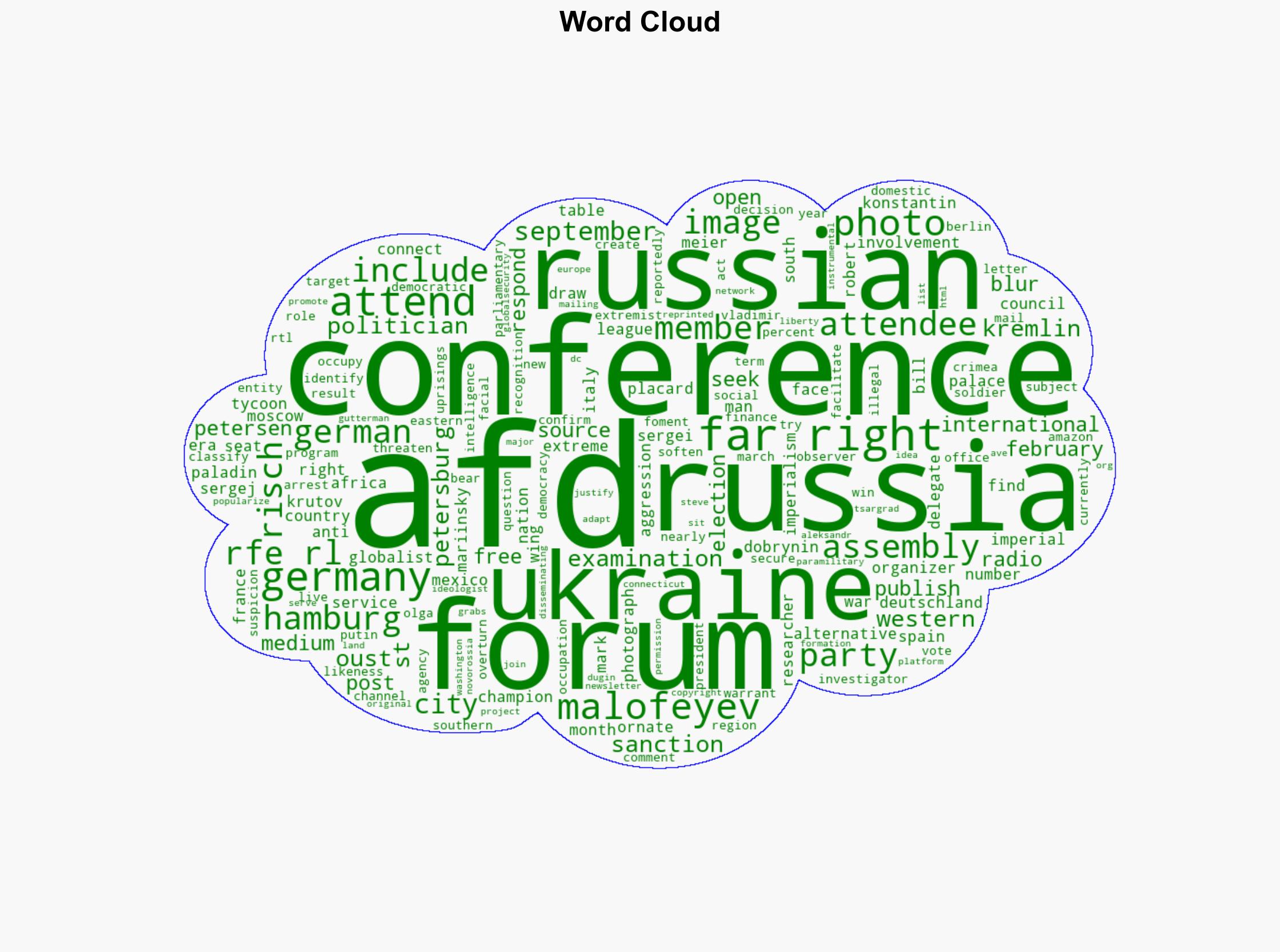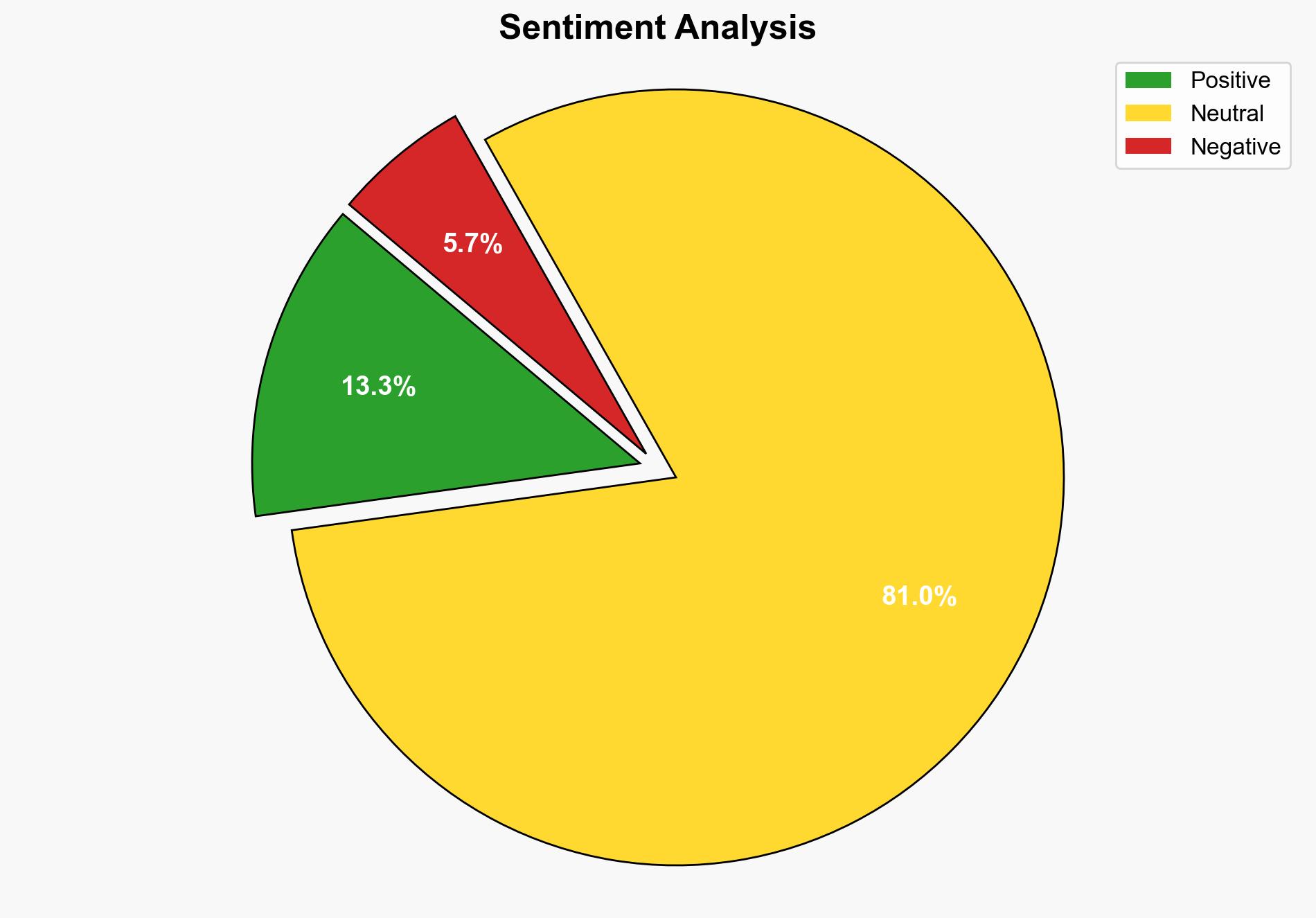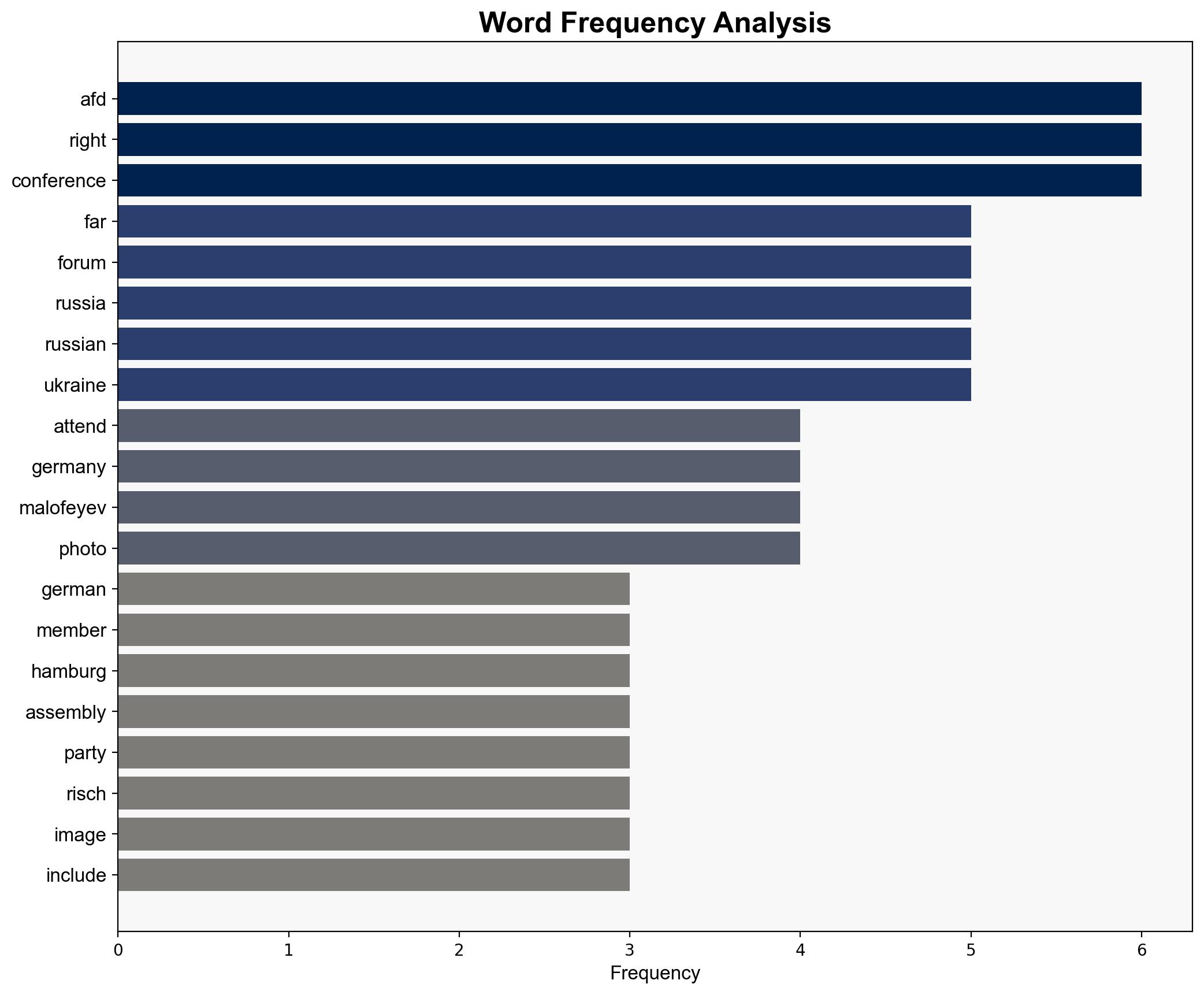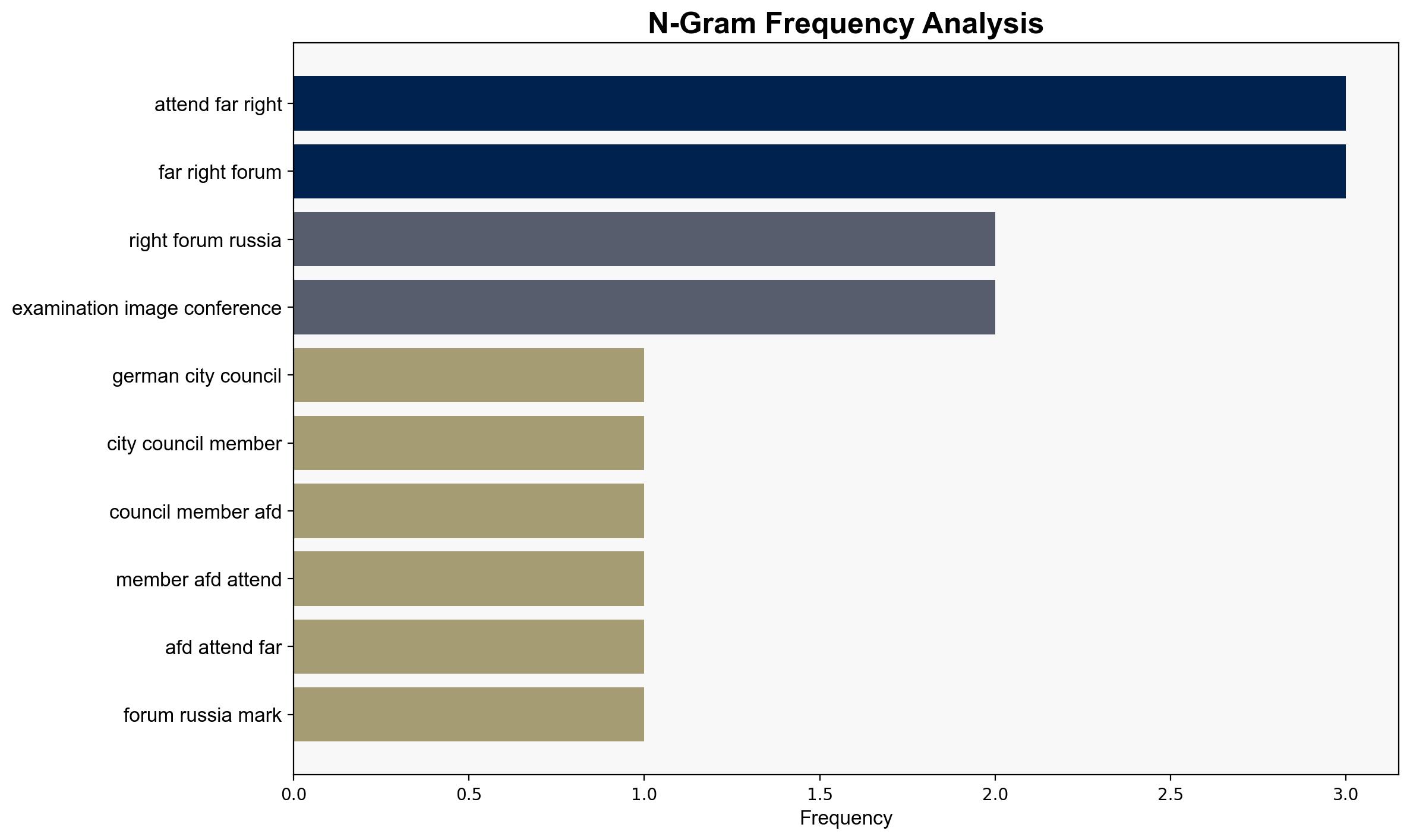German City Council Member From AfD Attended Far-Right Forum In Russia – Globalsecurity.org
Published on: 2025-09-30
Intelligence Report: German City Council Member From AfD Attended Far-Right Forum In Russia – Globalsecurity.org
1. BLUF (Bottom Line Up Front)
The attendance of a German city council member from the AfD at a far-right forum in Russia suggests potential alignment or collaboration between far-right political elements in Germany and Russia. The most supported hypothesis is that this event is part of a broader strategy to strengthen ties between European far-right groups and Russian interests. Confidence level: Moderate. Recommended action: Increase monitoring of transnational far-right networks and assess potential impacts on European political stability.
2. Competing Hypotheses
1. **Hypothesis A**: The attendance of the AfD member is part of a deliberate strategy to forge stronger ties between European far-right parties and Russian political interests, potentially to influence European politics in favor of Russian geopolitical goals.
2. **Hypothesis B**: The attendance is an isolated incident driven by individual interests or personal connections, without broader strategic implications for the AfD or European far-right movements.
Structured Analytic Technique: Using Analysis of Competing Hypotheses (ACH), Hypothesis A is better supported due to the presence of multiple far-right politicians from various countries and the involvement of Konstantin Malofeyev, a known proponent of Russian imperialism.
3. Key Assumptions and Red Flags
– **Assumptions**: It is assumed that the presence of multiple far-right politicians indicates a coordinated effort rather than coincidental attendance.
– **Red Flags**: The blurring of attendee identities in photos suggests possible attempts to conceal the extent of participation or affiliations.
– **Blind Spots**: Lack of direct evidence linking the AfD’s broader strategy to Russian interests; reliance on open-source intelligence and facial recognition for identification.
4. Implications and Strategic Risks
– **Geopolitical Risk**: Strengthening ties between European far-right groups and Russia could destabilize European political cohesion and influence policy decisions in favor of Russian interests.
– **Economic Risk**: Potential sanctions or diplomatic tensions could arise if European governments perceive increased Russian influence in domestic politics.
– **Psychological Impact**: The normalization of far-right ideologies through international forums may embolden extremist elements within Europe, increasing domestic security threats.
5. Recommendations and Outlook
- Enhance intelligence-sharing among European nations to monitor far-right activities and Russian influence operations.
- Develop counter-narratives to mitigate the spread of extremist ideologies.
- Scenario Projections:
- Best Case: Increased awareness and cooperation among European nations lead to effective countermeasures against far-right influence.
- Worst Case: Unchecked collaboration results in significant political shifts favoring Russian interests, undermining EU unity.
- Most Likely: Continued monitoring and moderate countermeasures prevent major shifts but do not eliminate the threat.
6. Key Individuals and Entities
– Robert Risch
– Konstantin Malofeyev
– Olga Petersen
– Aleksandr Dugin
7. Thematic Tags
national security threats, geopolitical influence, far-right extremism, European politics




